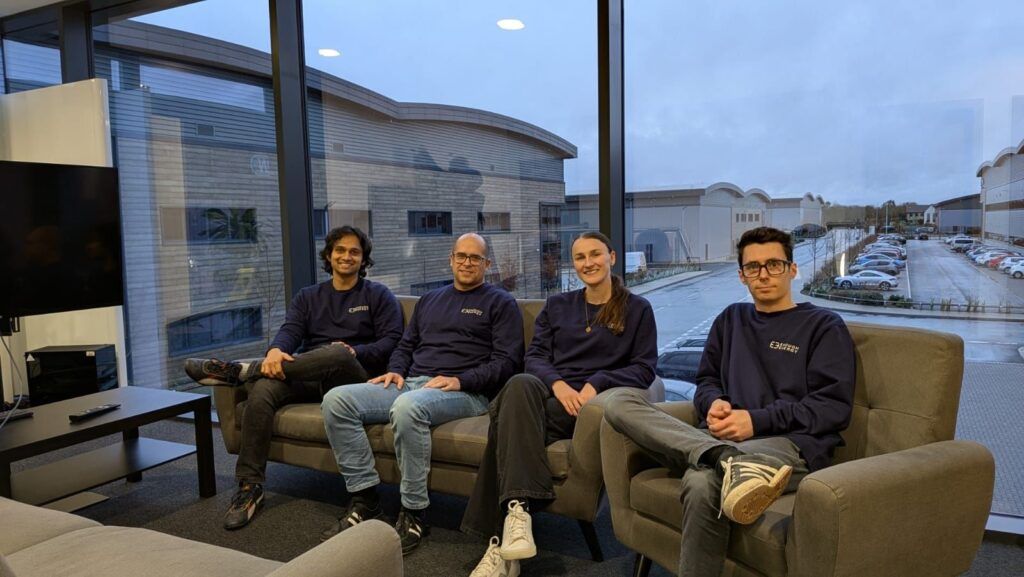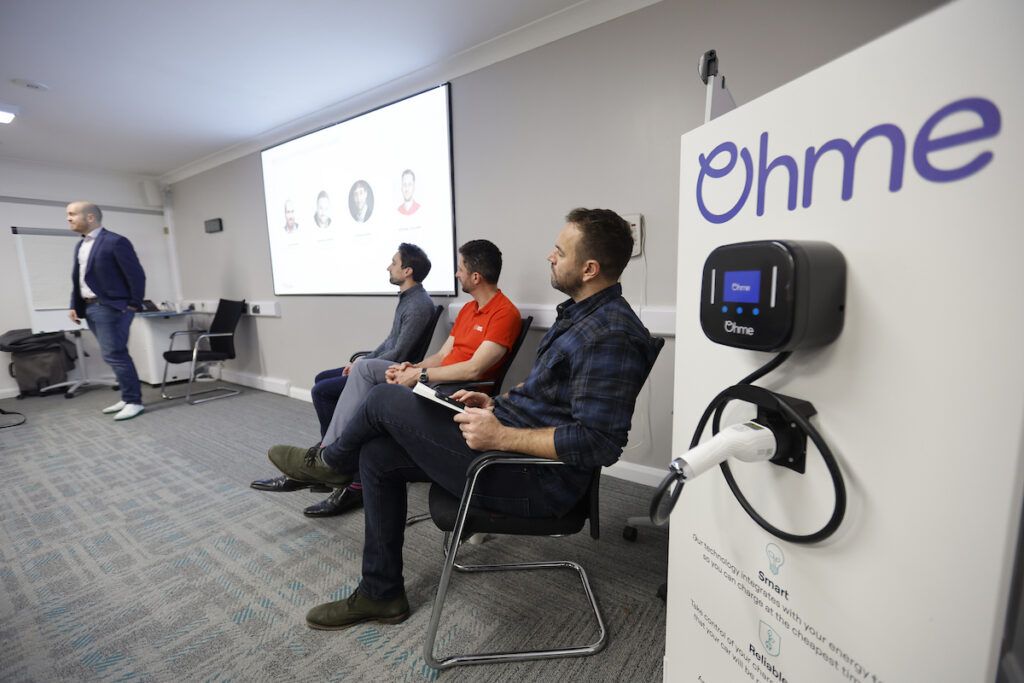Transport + Energy spoke to Ciara Flannery, co-founder of Enough Energy, about the company’s plans and how it helps businesses on their fleet decarbonisation journeys.
Tell us about your business and what it offers to the fleet industry…
We’re an Oxfordshire-based engineering company developing new technologies to help fleets to electrify sooner, without sky-high costs and complex installations.
Our battery-buffered charging solutions deliver ultra-rapid EV charging to any vehicle depot, no matter the strength of the grid connection on site. And with “plug-and-play” installations that can be completed in less than a day, we also eliminate the complexity and downtime usually experienced with deploying new infrastructure.
What makes us different is that our solutions are powered by a world-first power electronics innovation that optimises for efficiency and reliability, with the aim of substantially reducing total cost of ownership for operators compared to traditional solutions.
What are your decarbonisation goals or targets relating to fleet?
We want to support accelerated, lower-cost fleet electrification through eliminating some of the biggest electrification blockers – thereby taking fossil fuelled vehicles off the roads, faster.
We also aim to reduce infrastructure emissions by minimising or eliminating entirely the need for costly and carbon-intensive grid upgrades on sites. Plus, we aim to maximise renewable energy usage through simplifying the integration of solar energy sources into fleet charging.
What are your general decarbonisation and net zero targets as a company, both in the near term and by 2050?
We’re a young company, committed from the outset to design our operations and build our supply chain with sustainability in mind.
Our primary aim when it comes to decarbonisation is that we make energy storage systems more accessible through the development of new power conversion technologies. Through our technology innovations we are reducing cost, footprint and complexity of systems, whilst delivering increased resilience and reliability. We’re also removing the blockers associated with power converters, both grid inverters and DC-DCs, by eliminating the need for them entirely.
In what ways have you collaborated with others – whether transport or energy companies, and public or private sector – on the issue of fleets?
There is no one-size-fits-all solution to fleet charging – the sector needs a strong range of solutions across depot, public, home and mobile charging. Our primary product focus is on delivering for depots, but we also collaborate with other providers to deploy our leading technology across the broader charging landscape, delivering innovation where it is needed.
We’re really excited to be working as a technology partner with Charge Fairy to develop a new rapid charging solution that is entirely mobile. With Charge Fairy’s service and advanced telematics, fleet operators don’t have to think about charging at all – energy is delivered to the vehicles, wherever they are and whenever they need it. And with our technology, there are fewer compromises on power, weight and cost, from a safer battery design that can natively output DC or AC at almost any voltage or current combination. More to come on this – watch this space!
What policy changes or support would you like from the UK Government for fleets?
We’d welcome:
- Incentives or grants to support accelerated installations of depot-based charging and energy storage infrastructure.
- Support to reduce the barrier of grid constraints: faster planning approvals for grid connection upgrades and more support for battery-buffered systems, such as through Ofgem flexibility schemes.
- Support for certification activities for speedier deployment of new technologies.
How do you see the fleet sector changing and progressing in the next 5, 10, 15 years?
We expect to see rapid growth in LCV fleet electrification in the next 5 years, driven by regulation, and supported by more wide-spread delivery of accessible charging and energy storage solutions.
Within 10 years, we expect to see grid flexibility services and smart charging become more standard, along with more widespread integration of renewable energy generators. We also hope to see substantial improvements in typical vehicle range versus today.
Looking ahead to 2040, we hope to see full fleet electrification, standardisation in battery swapping, V2G and grid-independent charging systems.

Images courtesy of Enough Energy.












